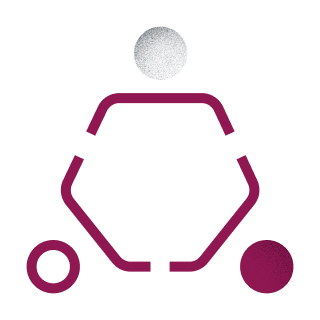Optimizing Clinical Data Registries: Opportunities for Diversity and Feasibility

Breaking the Barriers: How Inaccurate Trial Records Are Delaying Drug Development and Limiting Diverse Patient Populations
In an October 2023 report, BMC Medicine completed a follow-up on a 10-year effort to understand, report on and track data sharing challenges with big pharma, specifically for clinical trials.
The goal of the report was to benchmark data sharing challenges, growth and opportunities since the last report 10 years ago.
Every day, patients around the globe are waiting for life-saving treatments to reach the market. And yet, despite commitments to data sharing and transparency from industry leaders and policymakers, progress in these areas has been slow.
The initial report, which came out In 2013 from PhRMA/EFPIA, recognized the importance of data sharing and supported initiatives to enhance clinical trial data transparency and promote scientific advancements. However, despite these commitments, recent investigations indicate significant scope for improvements in data sharing by the pharmaceutical industry.
The goal of the report was to “review the current literature to identify and highlight feasible, urgent next steps for enhancing the data sharing ecosystem and for promoting harmonized data sharing practices among companies.”
What the report found was that even 10 years later – there is still a need to provide clear recommendations regarding which data should be shared, when it should be shared, and under what conditions. The suggested improvements aim to develop a data sharing ecosystem that supports science and patient-centered care.
Data sharing is crucial for promoting scientific discoveries and informed decision-making in clinical practice. Without access to all the relevant data, researchers are unable to fully understand the complexities of diseases and develop effective treatments.
One major obstacle stands in the way of getting potentially life-saving treatments to market faster – data silos. With valuable clinical trial data scattered across various environments, decision-making for principal investigators and sites becomes a daunting task. This is especially true for registries outside of the United States where data is not as strictly regulated.
 The Need for Enriched Clinical Trial Registries
The Need for Enriched Clinical Trial Registries
As the world becomes more interconnected, the need to access and utilize diverse data sources has become increasingly crucial. This holds true for clinical trial registries as well. Furthermore, limited access to data from different regions and countries can slow down the drug development process significantly.
Enriching clinical trial registries with diverse and accessible data is essential not only for improving efficiency but also for ensuring inclusivity in research. However, this task is easier said than done due to the numerous data silos that exist within the clinical landscape.
One major barrier to data sharing is the lack of consistency in clinical trial registries. These registries serve as a central source of information about ongoing clinical trials, but they vary greatly in terms of what information they collect and how it is presented. This makes it challenging for researchers to find relevant studies and access all the necessary data.
 Data Networks – The Solution We’ve Been Waiting For
Data Networks – The Solution We’ve Been Waiting For
Data networks offer a solution to break down these silos and provide a comprehensive view of the clinical landscape. These allow for real-time access to various data sources, including electronic health records, genetic databases, clinical trials registries, and more.
Case Study: Equitable Clinical Trial Access for Women, Minorities Among Cardiovascular Disease in the U.S. Leveraging Trial Intelligence
A top 10 international pharmaceutical company leveraged H1 to identify HCPs seeing diverse patients with a given cardiovascular disease and within a 50 mile radius of the existing trial sites.
The company specifically wanted to increase women and minority participation for clinical trial recruitment across trials. The ideal cohort needed to be 50% women participation to ensure coverage and clinical benefit beyond that of what competitor trials have enrolled across this indication.
They wanted to use the data to try and increase recruitment of diverse patients and roll out target lists to feasibility teams.
By utilizing these networks, researchers like this H1 customer can gain novel insights into top treaters, specific patient demographics, disease prevalence, treatment patterns, and other relevant information. This not only enables them to make informed decisions when selecting principal investigators and sites but also allows them to identify potential patient populations quickly.
 Accelerating Drug Development with Data Networks
Accelerating Drug Development with Data Networks
With enriched clinical trial registries at their disposal, drug developers can speed up their research significantly. By leveraging data networks’ capabilities, they can identify suitable participants for their trials much faster and gain insights into potential challenges they may face in different regions or countries.
With access to diverse datasets from various sources, researchers can conduct more robust feasibility assessments before initiating trials. This helps them understand different markets’ nuances and tailor their strategies accordingly – ultimately leading to more efficient drug development processes.
 Inclusivity in Research – Making a Difference with Data Networks
Inclusivity in Research – Making a Difference with Data Networks
One major benefit of utilizing data networks is its ability to promote diversity in clinical trials. By providing access to a more diverse range of patient populations, researchers can gather valuable data from underrepresented groups.
In addition to improving inclusivity, data networks also have the potential to bridge the gap between developed and developing countries in terms of clinical research. By democratizing access to data and reducing barriers for entry, these platforms open up new opportunities for global collaboration.
Another challenge is diversity in clinical trials, particularly outside of the United States. The majority of clinical trials are conducted in developed countries, which means that important insights about different populations and their response to treatments may be missed. This leads to drugs being developed without considering the needs and nuances of diverse patient populations.
 Data Platform Solutions and Clinical Trial Intelligence
Data Platform Solutions and Clinical Trial Intelligence
So how can we break these barriers? First, we need a standardized approach to clinical trial registries that ensures all relevant information is collected and easily accessible for researchers. This will save time and resources by eliminating the need for researchers to search multiple databases for information on a single study.
Secondly, we must actively work towards increasing diversity in clinical trials by including underrepresented populations from around the world. This will not only lead to more accurate results but also ensure that treatments are tailored to meet the needs of all patients.
Thirdly, communication between industry leaders, policymakers, and research organizations is key. By working together, we can establish best practices and guidelines for data sharing that benefit everyone involved in the drug development process.
Building a reliable, structured data ecosystem means creating more diverse clinical trial opportunities and access. However, It is a collective effort that requires collaboration and commitment from all stakeholders. By breaking down barriers and promoting transparency, we can get drugs to market faster and provide patients with the best possible care.
H1 embeds diversity and inclusion data within its solutions to provide clinical operations and feasibility teams granular insights into HCPs, patients, and trial sites that can help build equitable clinical trials. We aggregate and maintain a vast repository of diversity and social determinants of health data, performance data, and medical claims data sources covering more than 420,000 clinical trials globally. Our AI-powered analytics engine can identify diverse principal investigators, diverse patient populations, and the best trial sites to improve clinical trial diversity and health equity.
To learn more, request a demo.

 HCP Universe
HCP Universe Trial Landscape
Trial Landscape